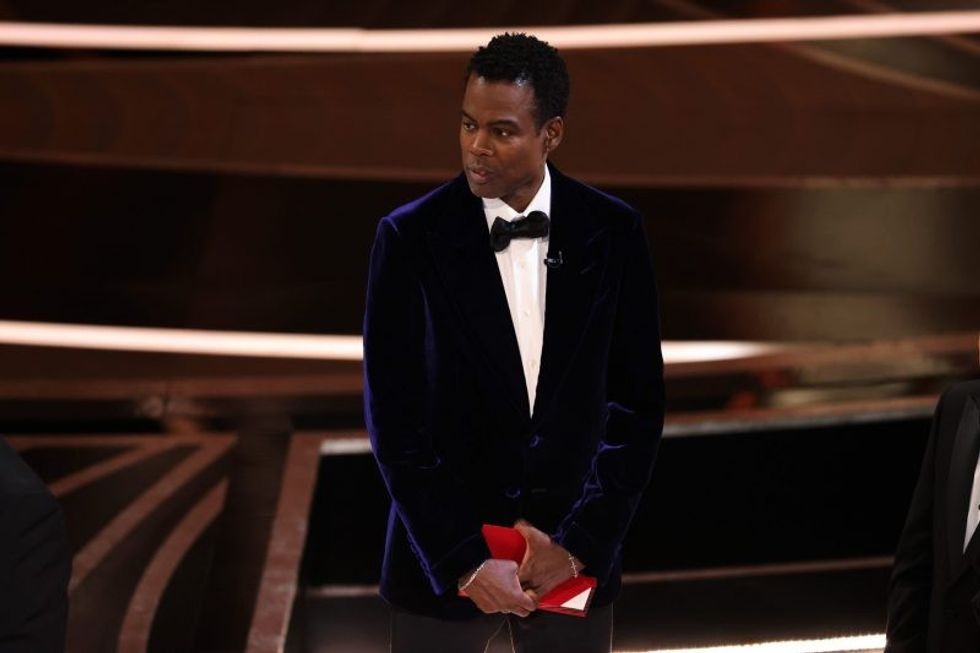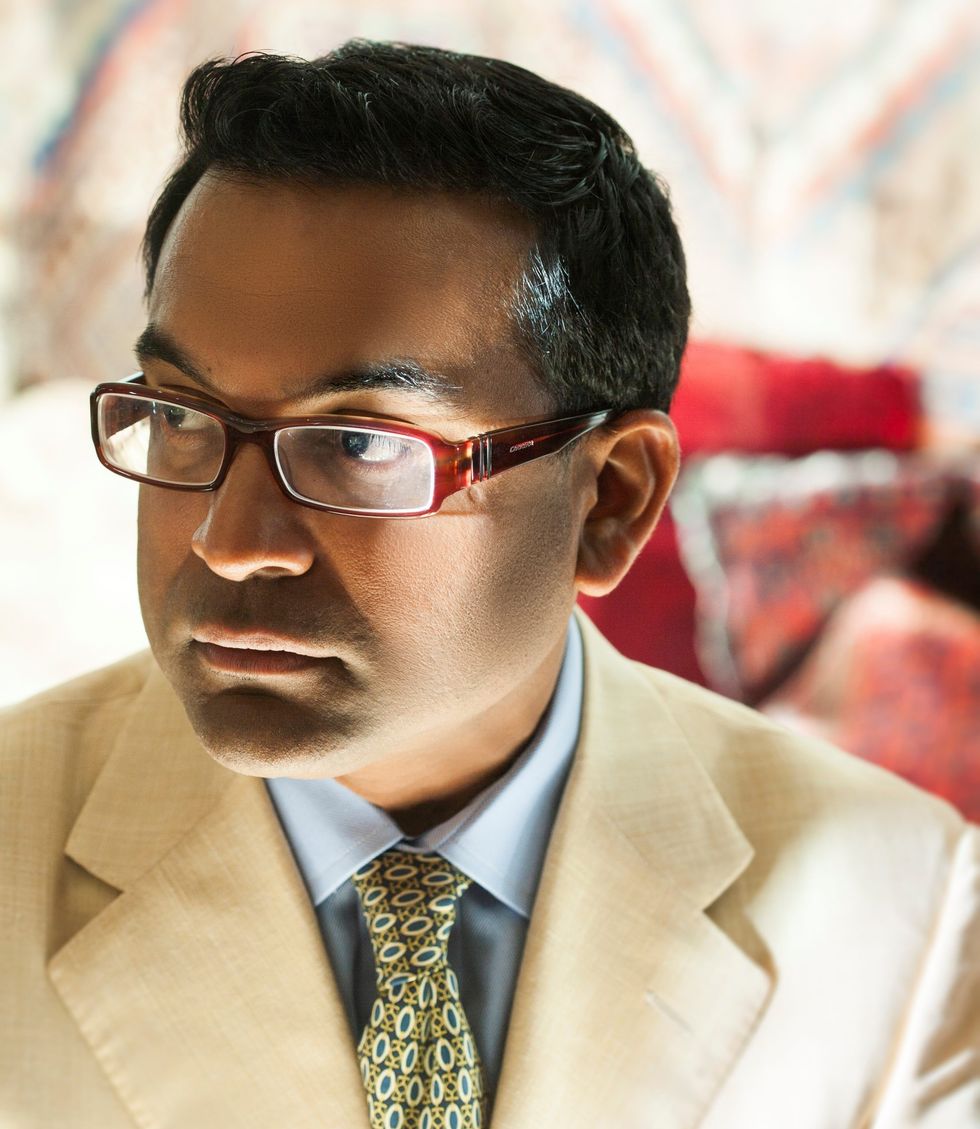ON ITS news website, the BBC, in an article entitled Why did Will Smith hit Chris Rock at the Oscars? discusses various theories, including ‘There were elements of performative alphamale behaviour at play here. An instinctiveness for a man to harm another man who insults his partner’.
In fact, this particular theory has been investigated in psychological research, for example, a study entitled, ‘The proof is in the punch: Gender differences in perceptions of action and aggression as components of manhood’.
The authors of the study argue that physical action, toughness, and aggression are central features of the masculine stereotype in the US, (perhaps ironically enough, reinforced by Hollywood).
They contend that men often experience anxiety stemming from the need to prove their manhood. Given this anxiety, acts of physical aggression become an opportunity for men to prove their masculine status.
Yet, perhaps there are other ways to convey to others that a man is strong, fearless, and willing to act, despite risks to personal safety.

Dangerous activities, such as motorcycle riding without a helmet, and mountain climbing without a partner, represent another class of masculinity-confirming events because their performance, like overt acts of aggression, also confirms a man’s toughness and courage.
This idea is investigated in a study entitled ‘Living Dangerously: Culture of Honor, Risk-Taking, and the Nonrandomness of ‘‘Accidental’’ Deaths’. This investigation has shown it is even possible to predict which parts of the US have higher rates of deaths from excessively manliness.
This study focused on white people, not Asians or black people, indicating that the issue of ethnicity and violence may apply to wide variety of ethnic groups. The study investigated how deaths associated with accidental causes (automobile accidents, falls, electrocutions) might be encouraged by an underlying ‘culture of honour’, a characteristic of communities that place special emphasis on the aggressive defence of reputation.
“Accidental” deaths were indeed found to be more frequent in so-called “honour” states in the US, reflecting the influence of a culture in certain regions that places a premium on proving that one is strong and fearless.
Accidents include accidental deaths associated with falls, exposure to inanimate and animate forces, drowning, burning, overexertion and anything similar.

The authors of this research argue that the tougher economic conditions and pervasive lawlessness in the southern and western United States produced an unstable social environment that helped perpetuate the strong belief in “honour” of the Ulster Scots (or “Scotch-Irish”), who immigrated to the US in great numbers during the 18th century.

Jane Campion’s The Power of the Dog, which became the first film directed by a woman to receive more than 10 Academy Award nominations, is said to deal directly with the issue of toxic masculinity. Campion, who won the best director Oscar for the movie, is quoted as explaining the meaning behind the title, ‘…As the title stands, it’s a kind of warning. The power of the dog is all those deep uncontrollable urges that come and destroy us...’
White males, in particular from ‘honour’ states, according to this research, respond to reputation threats with higher levels of hostility and violence, compared to people from “non-honour” states.
A study from the University of Southern California investigating a large sample of different ethnicity males in the US found a fierce sense of ethnic belonging was also linked with a strong attachment to traditional masculinity.
This study argued that African Americans growing up in father-absent homes may gravitate to masculinity derived from peer culture, therefore towards athletics, fighting, and risk-taking actions. The authors also say, of course, that father-absent homes would be likely to increase the influence of peer groups regardless of race.
According to a study published by a group of female analysts at the World Bank6, the United Nations Population Fund (UNFPA) estimates the annual worldwide number of so-caled ‘honour killings’ is as high as 5,000 women and girls, though some non-governmental organisations (NGOs) estimate as many as 20,000 ‘honour killings’ annually worldwide.
The World Bank authors argue that ‘honour killings’ are located mostly in particular parts of the world because south Asian men also face an idea of masculinity based on honour. They argue that men’s role is to maintain familial and community ‘honour’ by controlling the behaviour of their daughters, wives and mothers.
In other words, a woman’s sexual behaviour and public presence are tied to the honour of the household.
Male honour becomes violated when there is a lack of control over women, producing shame among men so that honour can only be restored through a punitive response towards women.
The need to protect a wife from a barbed yet supposedly humorous attack might have led some men to hit someone who made fun of a woman they might be feeling protective towards. But to show how psychologically complex what happened on Oscar night is, maybe it was the audience who laughed, who might be the people we really wanted to punch, if we had been the victim of a hurtful prank.
What if the Chris Rock joke had fallen flat and, indeed, some people had booed it as inappropriate and offensive?
Would Will Smith have felt the same motivation to respond? How much was the reaction of the audience part of what galvanised subsequent events?
We need to see that laughing, in fact, makes us complicit in hostility, if the joke itself is aggressive.
Everyone is taking sides – some say Rock went too far and others that this kind of physical attack on a comedian is never justifiable.
Yet there is one guilty party which so far has got away without attracting any blame, and which always escapes under the radar in these predicaments.
It’s the audience, who laughed at the joke, who have successfully avoided being seen as guilty in any way. In which case, Rock took one for the team.
Dr Raj Persaud is a consultant psychiatrist and author of The Mental Vaccine for Covid-19, published by Amberley Press.
References
- bbc.co.uk/news/entertainment-arts-60896604
- The Proof is in the Punch: Gender Differences in Perceptions of Action and Aggression as Components of Manhood; Jonathan R Weaver & Joseph A Vandello & Jennifer K Bosson & Rochelle M Burnaford; Sex Roles (2010) 62:241–251
- Living Dangerously: Culture of Honor, Risk-Taking, and the Non-randomness of ‘‘Accidental’’ Deaths; Collin D Barnes, Ryan P Brown, and Michael Tamborski; Social Psychological and Personality Science 3(1) 100-107
- www.cheatsheet.com/entertainment/why-jane-campion-2021-movie-called-the-power-of-the-dog-what-does-it-mean.html/
- Psychology of Men & Masculinity Vol 1, No 2, 75-86 Ethnic Belonging and Traditional Masculinity Ideology Among African Americans, European Americans, and Latinos; Josh M Abreu, Rodney K Goodyear, Alvaro Campos, and Michael D. Newcomb
- For the Sake of Family and Tradition: Honour Killings in India and Pakistan; Tanya D’Lima, Jennifer L Solotaroff, Rohini Prabha Pande; Indian Journal of Women and Social Change, 2020 Vol 5, Issue 1, 2020


















 Michael Gove
Michael Gove Jeremy Hunt
Jeremy Hunt
